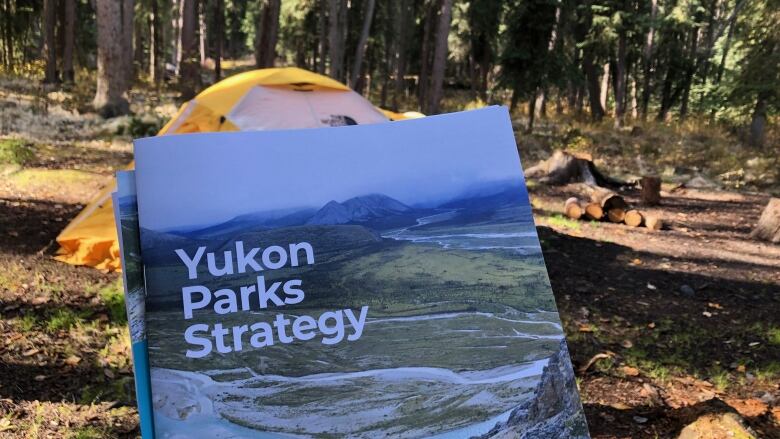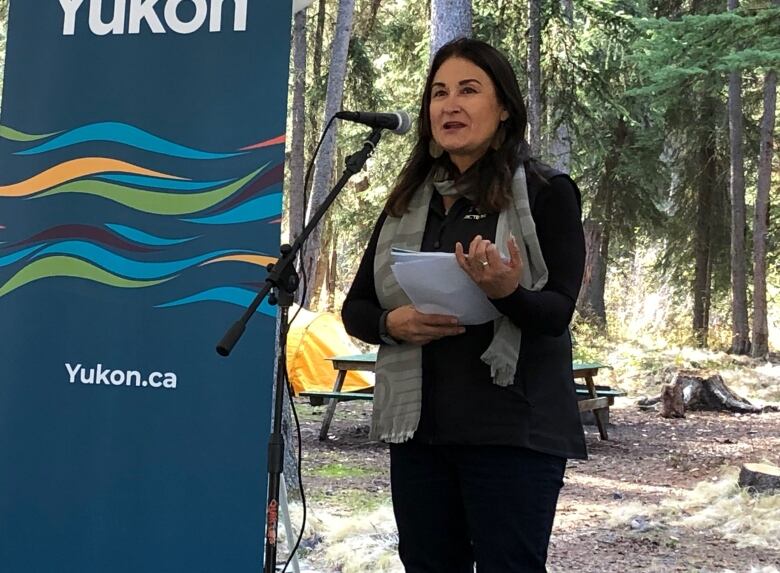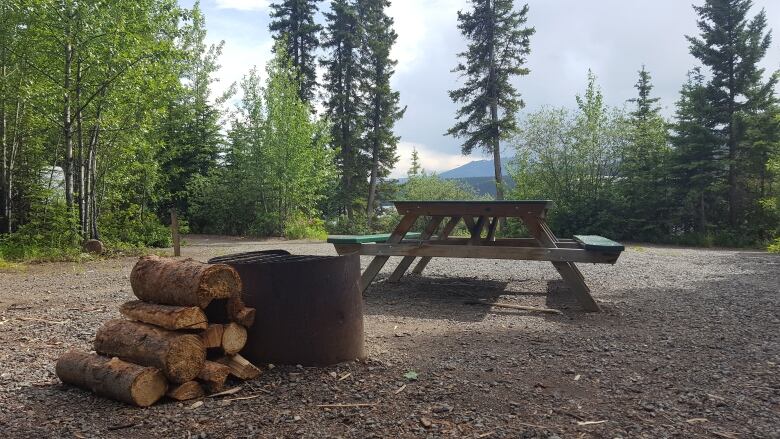Yukon camping fees to go up in 2022, and no more free stays for seniors
Government's 10-year parks strategy also promises new campground to be built near Whitehorse

Camping fees at Yukon's territorial parks are going up, with the price of an annual permit set to quadruple by 2023.
The changes are among those included in the territory's new parks strategy, released on Thursday. That document is to provide a 10-year plan for the parks system.
"Parks and campgrounds are one of Yukon's best assets, and beloved by Yukoners and of course many visitors,"said Environment Minister Pauline Frostat a news conference at the Wolf Creek campground outside of Whitehorse.
The strategyfollows a draft planreleased a year ago, with many of the same commitments. The fee hikes, however, have been pushed back a year because of the COVID-19 pandemic and its effect on tourism, the government says.
Under the new strategy, nightly camping fees will go up from the current $12 to $20, starting in 2022. The fee will be $18 per night if booked ahead of time through a new online system.
Annual camping permits for Yukon residents will see a more significant hike. Currently, it's $50 per year, and that will go up to $100 in 2022, and to $200 in 2023.

"Fees will help to ensure that we can contribute to offer world-class experiences in our parks and campgrounds while increasing services such as an online reservation system," Frost said.
There also won't be any more free camping for seniors starting in 2022 they'll have to start paying for daily and annual permits but at a 50 per cent discount.
Currently, the government recoups about 10 per cent of parkcosts through camping fees. When the fees change, it's expected to go up to 20 per cent.
Officials said the cost of implementing the new strategy is expected to be $12 million over the next five years, with an estimated $4 million of that coming from higher fees.
Some other changes included in the plan:
- Testing of an online reservation system for some campsites.
- A new campground to be built within two hours fromWhitehorsewith at least 150 sites.
- New sites added to existing parks.
- A longer season, with parks to be serviced from May 1 to Sep. 30 each year.
- New trails in parks.
- Creating "quiet zones" in parks, where generators won't be allowed.
Firewood will still be provided by the government at campgrounds, at no extra charge.
Campground use on the rise
The government has said the new plan is meant to do a number of things, including makingit easier for people to get a campsite. Many campgrounds especially those within an hour or two of Whitehorse are full for much of the summer.
The strategy says campground use across the territory has been growing steadily over the past decade, and that's expected to continue.
Between 2008 and 2018, the number of people using campgrounds went up by 80 per cent. Government officials say if the trend continues, demand for a campsite will double by 2024 and triple by 2028, compared to 2018.

Frost said the government wants to encourage people to use theparks.
"This is especially important and apparent this year as more Yukoners are getting out and camping and taking more 'staycations' in the wake of COVID-19," she said.
Frost also said the parks strategy will help support reconciliation with First Nations and Inuvialuit.
"For example, we will identify new parks and protected areas in collaboration with our Indigenous partners, making sure that we honour Indigenous rights, languages, harvestingand traditional uses on the land," she said.
The Canadian Parks and Wilderness Society (CPAWS) Yukon applauded the new parks strategy, saying it represents a shift toward looking at the park system as a whole, rather than a collection of individual areas and facilities.
Randi Newton, conservation manager at CPAWS Yukon, called it a "big step forward."
"It will help us make better decisions during land use planning processes, including the ongoing Dawson Land Use Plan," Newton said in a written statement.
There are 57 territorial parks in Yukon, with 42 of them open for camping. The rest are protected areas such as wilderness preserves and ecological reserves.
Written by Paul Tukker, with files from Laura Howells












_(720p).jpg)


 OFFICIAL HD MUSIC VIDEO.jpg)
.jpg)



























































































